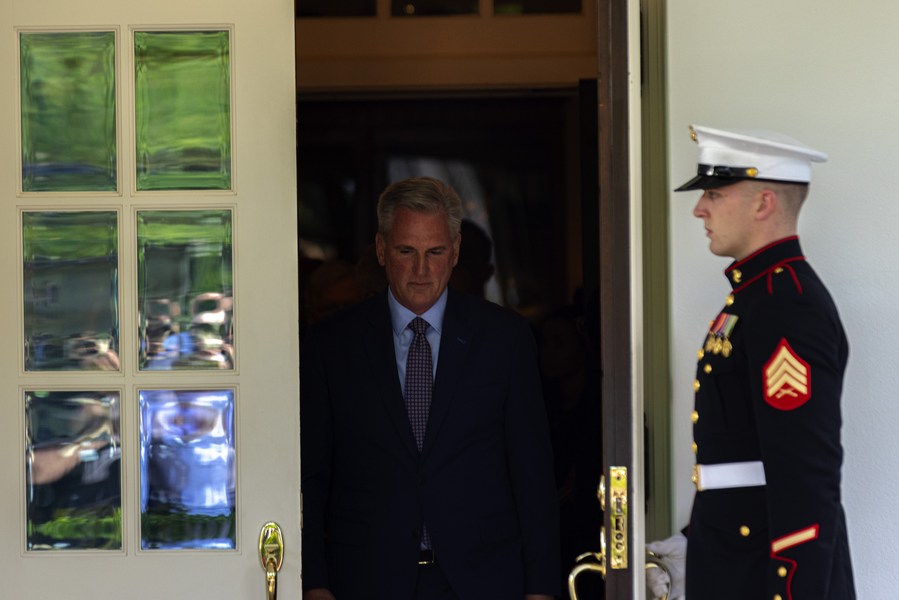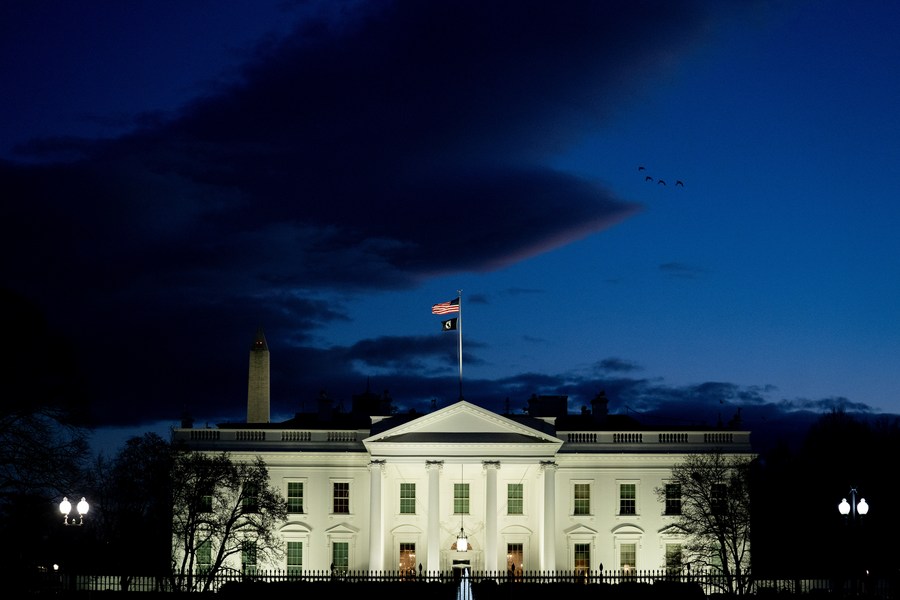Debt ceiling debate in the United States is creating rampant uncertainty and risks an immediate economic recession, financial crisis, and hardships for American families and businesses.
by Xinhua writers Liu Yanan, Yang Shilong
NEW YORK, May 24 (Xinhua) — The debate over the debt ceiling in the United States is creating rampant uncertainty and risks an immediate economic recession, financial crisis, and hardships for American families and businesses, according to U.S. experts.
Despite reaching the 31.4 trillion U.S. dollar debt limit in January, discussions between the White House and congressional leaders only began on May 9, less than a month before the estimated date of a U.S. government default on its debt obligations.
Political calculations from both sides will likely hinder an early agreement with the June 1 deadline looming.
DEBT CEILING AS POLITICAL LEVERAGE
The lifting of the debt ceiling, initially introduced during World War I, was a routine vote in Congress. Today, the issue is political theater amidst a growing partisan divide.
“We’ve raised the debt ceiling almost 80 times since 1960,” said Ben Harris, former assistant secretary for economic policy in the U.S. Department of the Treasury.
The notion that Congress would approve spending and then refuse to pay for that authorized spending is absurd, said Harris at a panel discussion organized by think-tank the Center for American Progress on Thursday.
U.S. partisan democracy never worked perfectly, or the way it was intended, and the parties cooperate on fewer and fewer things than in the past, given the extreme polarization, according to David A. Super, professor of law and economics at Georgetown University Law Center.
“Now, any member of either party can get in a lot of trouble if they are seen cooperating with the other party on almost anything,” Super told Xinhua in an interview on Wednesday.
What’s more worrying is that both parties may think that if this crisis comes to pass, the other side will be hurt politically, according to Wendy Edelberg, senior fellow on economic studies with the Brookings Institution.
“My guess is that those sorts of political calculations will always be with us,” said Edelberg at the panel discussion.

Republican House Speaker Kevin McCarthy exits the White House after a high-profile debt ceiling meeting in Washington, D.C., the United States, May 9, 2023. (Photo by Aaron Schwartz/Xinhua)
HUGE UNCERTAINTY
The brinkmanship creates enormous uncertainties around the ongoing debt ceiling talks between the White House and Republican members of Congress, although the U.S. government could default on its debt obligation as early as June 1.
As Democrats aren’t going to support deficit reduction measures to pay for tax cuts that drive back up the deficit and Republicans are not willing to agree to anything that limits tax cuts, there’s no basis for an agreement, said Super.
House Republicans intend to force a default intolerable to Wall Street. Super added that the financial industry would then pressure President Biden into giving them everything they want.
Super also noted that a short-term debt limit extension is overwhelmingly likely. “A deal is possible, but I think there’s a good chance we won’t get a deal, and there’s also a good chance that U.S. House Speaker (Kevin) McCarthy agrees to a deal and then his members reject it,” he added.
“Ultimately, there are a lot of uncertainties about what’s going to happen,” said Peter Cohan, associate professor of management practice at Babson College, a private business school in Massachusetts.
There’s also a possibility that the June 1 deadline, called the X-date, could be extended based on some machinations within the U.S. Department of the Treasury, said Cohan in an interview with Xinhua on Friday.
Possible workarounds, such as invoking the 14th Amendment to the U.S. Constitution to declare the debt ceiling unconstitutional, would also add uncertainty to the outcome.
There will be enormous uncertainty in lawsuits if the 14th Amendment to the U.S. Constitution is invoked, and “once things get wrapped up in the Supreme Court, all bets are off,” said Edelberg.
Mark Zandi, chief economist at Moody’s Analytics, stressed the importance of maintaining optionality because “we don’t know what the scenarios are going to be like in the future.”
U.S. House Speaker McCarthy recently said a bill to raise the debt ceiling could be ready on the floor next week, which was followed by a brief pause of talks on Friday.
Moreover, the planned recess of the U.S. Senate until May 29 also adds uncertainty to whether Congress could pass the potential deal in time.

This photo taken on Jan. 20, 2023 shows the White House in Washington, D.C., the United States. (Xinhua/Liu Jie)
POTENTIAL RISK UNIMAGINABLE
The U.S. government default on its debt obligations, even a short-term breach, will bring unimaginable risks and damage to financial markets, U.S. families and the economy, experts warned.
According to Edelberg, there are 4 million disabled veterans whose payments are scheduled for June 1, and those payments are now uncertain because the United States runs a deficit and the Department of the Treasury needs to increase the federal debt to meet its obligations.
“Even if the crisis only lasts a few days, the damage could be lasting … we’re seeing concerns in financial markets for treasury bills that are scheduled to mature in June,” Edelberg said.
If both sides don’t reach a deal a week later, “we’ll start to see the impacts on financial markets,” warned Zandi, suggesting that the equity market could plunge 15 percent to 20 percent.
A breach of debt obligation for a few days would be enough to push the United States into recession as the U.S. economy is already fragile, said Zandi.
Zandi noted that a prolonged breach of a few weeks would mean a severe economic downturn. “Once you go down that path, it puts such pressure on the financial system and economy. Things break that we’re not even anticipated … there would be the financial crisis itself.”
The damage from a prolonged breach also goes beyond economics and could erode U.S. geopolitical or reserve currency status, Zandi said.
If the credit rating of treasury debt is downgraded, there will be a widespread downgrade for any entity backed up by the federal government, explicitly or implicitly, according to Zandi.
“The chaos that we create would be incalculable. We immediately go to a very severe financial crisis and economic downturn,” Zandi said.
Harris shares a similar perspective to Zandi, emphasizing that the current situation could make the markets no longer regard U.S. treasuries as free of credit risk. The U.S. dollar would depreciate in addition to a pretty acute shakeup of global trade patterns.
(Hu Yousong and Zhang Juan also contributed to this story.)■













